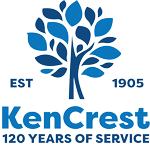In Language There Can Be Peace
I took a class many years ago at the Philadelphia Friends Meeting Friends; it was three days long, and absolutely the hardest class of my life! Despite this, it was also one of my top five learning experiences. The subject was conflict mediation; I took the class because I knew that conflict was on my list of avoidances. A few minute interview with a psychologist would reveal the root cause; throughout my childhood I experienced several traumatic experiences. Research about the effects of childhood trauma are very clear, and my experiences put me in some kind of high-risk category. Any time there was yelling, or any high tension moments as a child― I had only two responses― I ran to my grandmother’s house to talk, or hid in the closet. I found a workaround as I got older and I could avoid conflict well; figuratively I just hid. I had too much respect for myself and for the work I wanted to do― to avoid conflict forever!
When the class began, it was difficult but so amazing. The underlying belief is that people need to come to a place of sharing where everyone can see the other side or perspective. Once people can see clearly and understand when someone else is coming from, together you can explore choices which would create a peaceful future. The training is designed as a series of exercises, each day the exercises were more challenging. We practiced different skills, and one of the role plays focused on a contractor and a customer. The customer accused the contractor of stealing a vase. Personally, the scenario didn’t resonate with me much. Throughout my life, all of my material possessions were lost― not once― but twice in fires. I kept saying to myself “why does anyone want to fight over that?” I quickly realized that was not my decision to make, and my group got to work helping these two sort out their challenge.
On one of the final days of the course we got to pick our own challenge, and focus on something that we were worried we couldn’t handle. A few people said they worried about violence, and that people might bring weapons to their mediation sessions, or threaten each other. I was not worried about that, I worried that people would start yelling at each other! If they yelled, I was concerned that mentally I would begin “retreating to the closet” and hid.
During our difficult personal scenarios fellow classmates would then conduct a role play so in a safe way so that you could face your fear. In mine, three of my classmates staged a yelling match. They made it up on the spot, and played out a scenario where their mother had died and they fought over a vase; each argued that their mother had promised the vase to them. By the end I didn’t even pause to consider that something else was the true cause of anger. I did pause in amazement when the yelling started and the story emerged with no huddle! I stood up, smacked my hand on the table get their attention; and told all three that I was in charge, that everyone would get a turn, and that I would decide who could speak first. All three stopped in that moment. Years later, I had a conflict that felt just like that! I did not panic and was able to get the parties to agreement. My confidence in conflict these days is pretty high.
I found in this training, that language holds respect. It’s like having good glasses, it can makes fuzzy things clear. Language is the carrier of establishing peaceful intentions or not; it’s also the leveling field for justice, kindness, and courage. A lot of my day is spent listening and talking; I find in almost every moment, I am looking for clarity, seeking common interest, and looking to level the playing field. I am grateful for the learning, and I’m grateful for the opportunity to use language for justice. Let’s all continue to do our best to use language in ways that will lead to solutions; even in moments that require us to be more courageous and compassionate.
